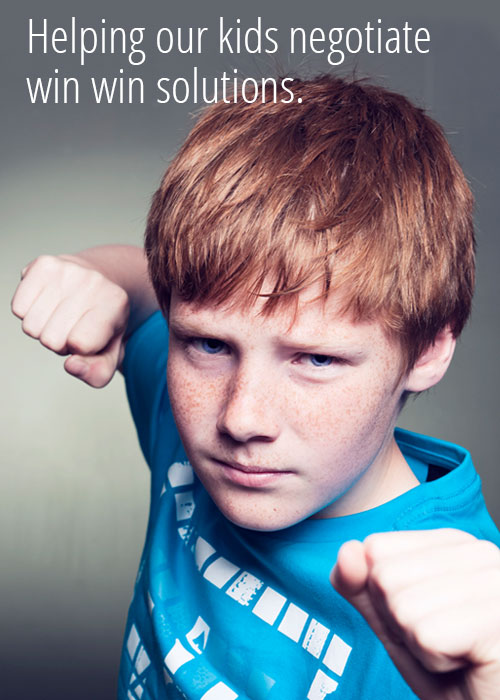They are arguing over a toy…
One of them is using it and the other wants it.
They both feel like they have the right to that toy –
“I was using it first!”
“But it belongs to me!”
Things quickly deteriorate into a yelling match, and then anger and frustration lead to name calling and storming out…
One comes to me, upset, wanting me to understand her point of view. I do. I empathize, I tell her I understand how frustrated she is, I even ask her to think about how her sister might be feeling.
Then the other one comes out, teary and upset. She wants her side of the story heard, and so I listen and I empathize and I try to get her to think about her sister’s feelings too… and then the argument begins again.
What am I missing??
As they both sit teary and grumpy on opposite ends of the couch with me in the middle it hits me, and before they can launch into another round of ‘but I’m right’ I quickly say
“It doesn’t matter who is right or wrong, because now your argument has made you so angry at each other that you don’t even want to play anymore. So even if you are ‘right’ you still miss out.”
They both stop and look at me, still scowling but at least they stop arguing.
“Being ‘right’ isn’t all it’s cracked up to be if you feel miserable.” I say “Can you think of a way that you can both feel better, so that you can keep playing?”
This wasn’t a magical answer on this occasion. They didn’t resolve the ownership of the item, but they did decide to go and do something else, so I’m calling that that a win.
And I hope that this is the beginning of the missing link, the thing I have been forgetting when I find myself called on to referee my kids’ arguments, when I am in that horrible position of being looked upon to make a final judgement. The thing I have been forgetting is that it doesn’t have to be right or wrong, it doesn’t have to be one or the other, what we should be working towards is a win win solution.
Helping Kids Negotiate Win Win Solutions.
- Support your kids to work through conflicts as calmly as possible.
Try to remain neutral if you can and let your kids sort it out with your help. Remember that conflict is not bad, it’s an every day part of life and a great opportunity to learn. - Encourage your kids to say how they are feeling, what they are concerned about, and what they need, in a calm manner.
Using ‘I’ Statements – “I feel X when Y happens”- can be a good place to start. - Help your kids listen to each other.
Encourage them not to butt in while the other is speaking, remind them they will all get a turn to speak. Use mirror listening, where you paraphrase and repeat what has been said out loud can help make sure everyone feels heard and that we all understand each other’s points of view. - Encourage your kids to think of ways they can solve the problem.
Ask them “What could we do so that everyone feels good?” - Help them put the solution into action.
Encourage your kids to give something a try, even if they are not sure. Perhaps even offer to revisit the situation after ten minutes of having a go.
Start early with lots of support and modelling for preschoolers, and as they get older hopefully some simple prompts and questions will get them on the right track.
Yep, this approach takes a lot longer than just handing down a judgment from above, and it doesn’t always work, but my hope is that if I put in the hard work now, and encourage my kids to deal with conflict and try to negotiate win win solutions, then slowly but surely they will look to me less to referee their arguments.
Practicing these skills now can also lead to more creative problem solving skills in the future… that is definitely a win for my when they are teenagers and it is also an important skill for my kids to take into adult life.
Of course one of the best way to teach kids to do this is to do it ourselves! So next time a limit is not set in stone and I have some room to negotiate, I’m going to practice coming up with a win win solution!
Photo Credit: Philippe Put via Compfight cc


Good thought, I will remember that!